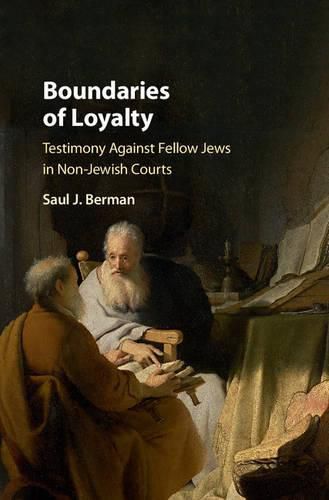Readings Newsletter
Become a Readings Member to make your shopping experience even easier.
Sign in or sign up for free!
You’re not far away from qualifying for FREE standard shipping within Australia
You’ve qualified for FREE standard shipping within Australia
The cart is loading…






Talmudic legislation prescribed penalty for a Jew to testify in a non-Jewish court, against a fellow Jew, to benefit a gentile - for breach of a duty of loyalty to a fellow Jew. Through close textual analysis, Saul Berman explores how Jewish jurists responded when this virtue of loyalty conflicted with values such as Justice, avoidance of desecration of God’s Name, deterrence of crime, defence of self, protection of Jewish community, and the duty to adhere to Law of the Land. Essential for scholars and graduate students in Talmud, Jewish law and comparative law, this key volume details the nature of these loyalties as values within the Jewish legal system, and how the resolution of these conflicts was handled. Berman additionally explores why this issue has intensified in contemporary times and how the related area of ‘Mesirah’ has wrongfully come to be prominently associated with this law regulating testimony.
$9.00 standard shipping within Australia
FREE standard shipping within Australia for orders over $100.00
Express & International shipping calculated at checkout
Talmudic legislation prescribed penalty for a Jew to testify in a non-Jewish court, against a fellow Jew, to benefit a gentile - for breach of a duty of loyalty to a fellow Jew. Through close textual analysis, Saul Berman explores how Jewish jurists responded when this virtue of loyalty conflicted with values such as Justice, avoidance of desecration of God’s Name, deterrence of crime, defence of self, protection of Jewish community, and the duty to adhere to Law of the Land. Essential for scholars and graduate students in Talmud, Jewish law and comparative law, this key volume details the nature of these loyalties as values within the Jewish legal system, and how the resolution of these conflicts was handled. Berman additionally explores why this issue has intensified in contemporary times and how the related area of ‘Mesirah’ has wrongfully come to be prominently associated with this law regulating testimony.